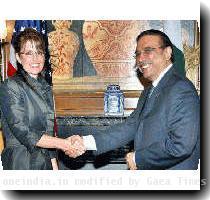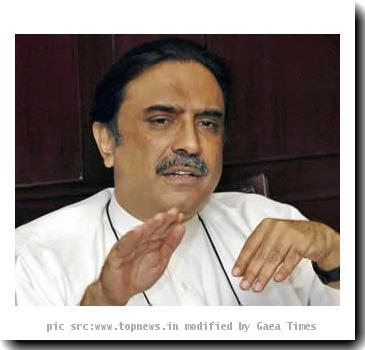Twin suicide bombings in northwest Pakistan kill 15 people, most of them police
By Riaz Khan, APThursday, February 11, 2010
Pakistan: 2 suicide blasts aimed at police kill 15
PESHAWAR, Pakistan — Two suicide bombers struck outside a police complex in northwestern Pakistan, killing 15 people and underscoring the relentless militant threat despite army operations and U.S. missile strikes against al-Qaida and the Taliban.
The second blast Thursday went off as rescuers responded to the first — a militant tactic seen before in Pakistan, but not often. Of the 15 dead, at least nine were police, while the 30 people wounded included the city’s police chief, hospital official Abdul Hafeez said.
The attacks in the city of Bannu coincided with a visit to Islamabad by White House National Security Adviser Jim Jones.
Militants have carried out numerous attacks on security forces over the past several years to undermine the public’s confidence in the already-weak state. On Wednesday, a suicide bomber killed 10 police officers and seven civilians in the Khyber tribal region near the Afghan border.
No group immediately claimed responsibility for Thursday’s blasts, which were carried out by attackers on foot outside a gate to the police complex, but suspicion is likely to fall on the Pakistani Taliban. The city of Bannu lies just outside North Waziristan, a major militant stronghold.
The suicide bombings come amid growing certainty that the militant group’s top commander, Hakimullah Mehsud, died from wounds sustained in a U.S. missile strike in mid-January. The Taliban have denied he is dead, but failed to offer proof that he is alive.
A potential succession struggle in the wake of Mehsud’s death could temporarily weaken the Pakistani Taliban but is unlikely to cripple its ability to carry out deadly attacks.
The Pakistani military has pursued the militant group in its main stronghold, the South Waziristan tribal region, for months and has managed to dismantle a good deal of its infrastructure. But many of the militants are believed to have fled to North Waziristan and other areas in the tribal belt or just outside it.
The U.S. has pushed Pakistan to do what it can to root out militants on its soil who threaten Pakistan’s own stability and American and NATO troops across the border in Afghanistan.
Jones, the White House adviser, met with Pakistani President Asif Ali Zardari and other high-level officials Thursday, U.S. Embassy spokeswoman Ariel Howard said.
During the meeting, Zardari opposed the U.S. drone attacks on Pakistani territory, saying they undermined national consensus against the war on terror, according to a statement issued by president’s office late Thursday.
Zardari urged Washington to transfer the drone technology to Pakistan so that its own security forces could use them against militants for a “wider public acceptability,” the statement said, adding that Jones praised Pakistan’s role in the war against terrorism and assured continued support to Pakistan to win this war.
Tags: As-pakistan, Asia, Asif Ali Zardari, Bombings, Geography, Law Enforcement, National Security, North America, Pakistan, Peshawar, Police, South Asia, Terrorism, United States


